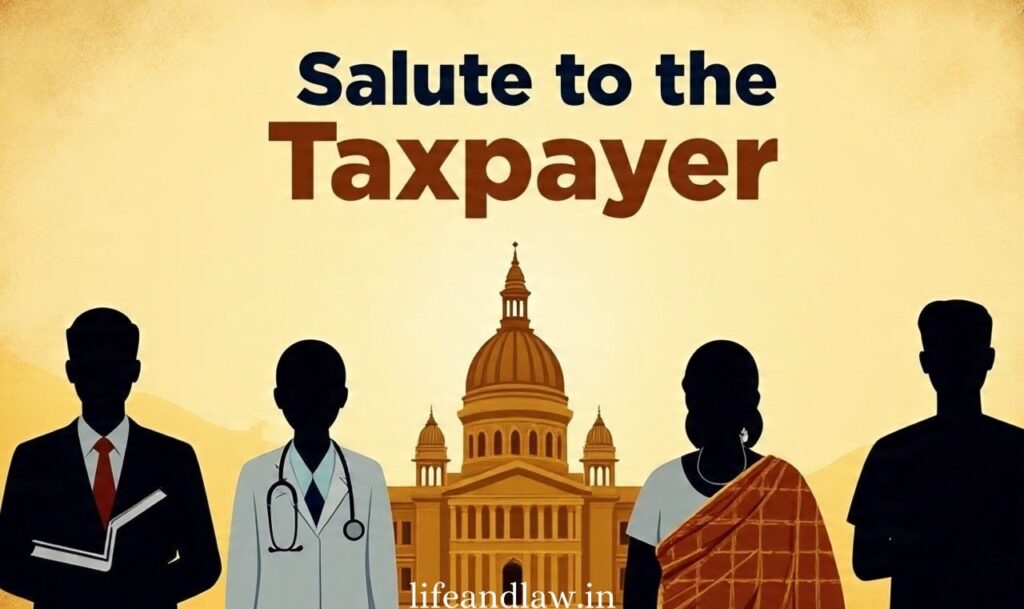Trending

Every year on August 2, we observe Taxpayer Appreciation Day, a time to pause and recognise the millions of individuals and businesses who quietly fund the engine of our society. While taxes are frequently perceived as a burden, they are, in fact, a communal investment in our country’s future. From the moment a tax return is submitted until the day a child enters a public school or a vehicle races down a newly resurfaced highway, our tax dollars are at work.
In this article, we’ll look at how taxes play a role in creating a functional, fair, and forward-thinking country, as well as why it’s time to thank the taxpayers who make it all possible.
Every public service is funded by taxpayers. They are teachers, nurses, businesspeople, and retail workers – ordinary individuals who donate a portion of their earnings, purchases, and possessions to fund public services. Many do so without ever realising the immediate impact of their contributions, which makes their efforts all the more selfless and admirable.
Taxes, which are often deducted automatically from pay cheques or added gently at the point of sale, can appear to be undetectable. However, the invisible becomes obvious when we consider what would happen if they disappeared: no public schools, no clean water systems, and no emergency responses. Every streetlight, school bus, and clinic tells a story of civic service.
Taxes are more than just numbers on a government spreadsheet; they are the infrastructure that holds a country together. Let’s take a closer look at where our taxes go:
Infrastructure: Taxes pay for the roads we travel on, the bridges that connect our cities, and the public transportation networks that make commuting possible. In 2024, taxpayers contributed approximately rupees 1.2 trillion to national highway developments in India.
Education: Taxes fund public education at all levels, from primary to university. Programs such as the Mid-Day Meal Scheme and scholarships for poor students are direct beneficiaries of these funding.
Healthcare: During the COVID-19 epidemic, taxpayer-funded healthcare systems were essential. Public hospitals, vaccination programs, and emergency services all rely on national and state budgets.
Safety and security: Police departments, emergency response teams, fire departments, and even the military rely on consistent taxpayer financing to function and protect.
Social welfare: Taxes fund critical support systems such as pensions for the aged, job guarantee schemes (such as MGNREGA), and subsidies for marginalised populations.
Environmental conservation: Efforts to mitigate climate change, clean up rivers, and promote renewable energy are increasingly backed by public funding channels.
Each of these programs contributes to increasing quality of life and fostering equity among the population, and none would exist without public support.
Of course, a tremendous contribution requires enormous responsibility. It is critical that governments spend tax revenues wisely and publicly. In recent years, digital tools like the Public Financial Management System (PFMS) and the Union Budget Dashboard have made it easier for citizens to track how their taxes are spent.
Transparency develops trust, and when taxpayers see tangible results from their donations, it promotes a healthy connection between residents and the state.
Recognising taxpayers is more than simply a symbolic gesture; it represents a step towards a more involved and engaged citizenry. When people feel acknowledged, they are more likely to cooperate voluntarily, engage in civic processes, and be proud of public services.
Consider a national campaign in which tax-paying residents are publicly recognised, firms that routinely pay dues are rewarded, and public locations display “Built by You” banners to promote taxpayer-funded developments. Appreciation may humanise the system and instill a sense of pride in national development.
As we honour taxpayers, remember that their contributions shape the very fabric of our country. Taxes are more than just responsibilities; they represent pledges to community progress.
This article is authorised by Adv. Abdul Mulla, the originator of the legal platform www.asmlegalservices and www.lifeandlaw.in, which aims to demystify legal information and raise civic consciousness. Through such articles, the author would like to continue to demonstrate how law, policy, and public involvement work together to create a better society.
Adv. Abdul Mulla (Mob. No. 937 007 2022) is a seasoned legal professional with over 18 years of experience in advocacy, specializing in diverse areas of law, including Real Estate and Property Law, Matrimonial and Divorce Matters, Litigation and Dispute Resolution, and Will and Succession Planning. read more….
Copyright BlazeThemes. 2025